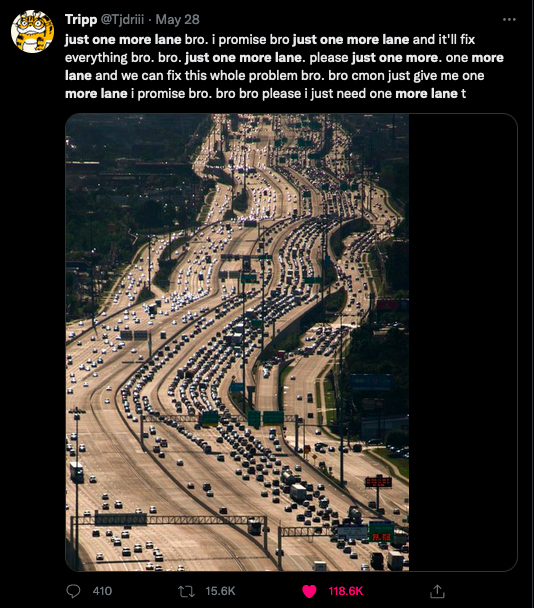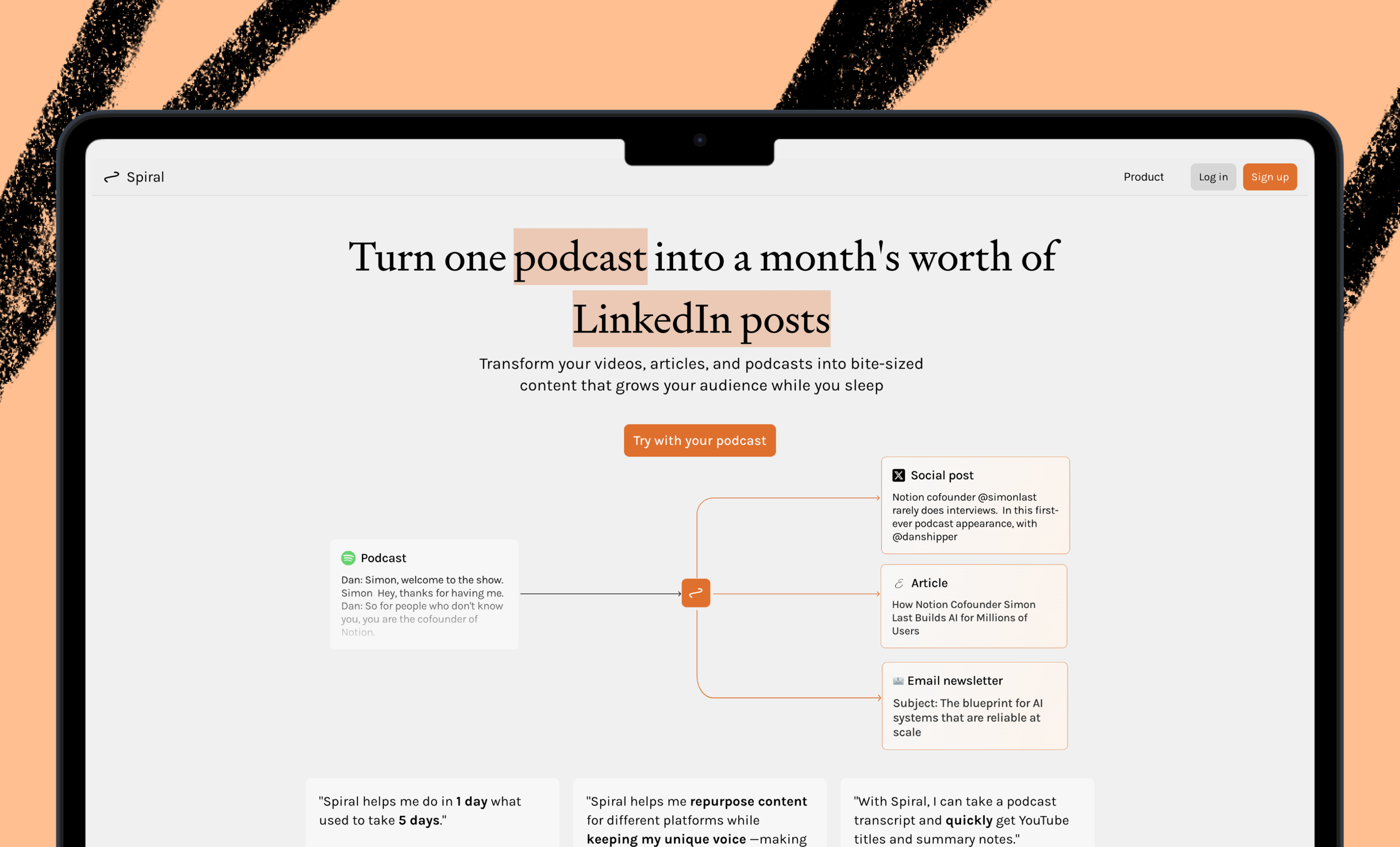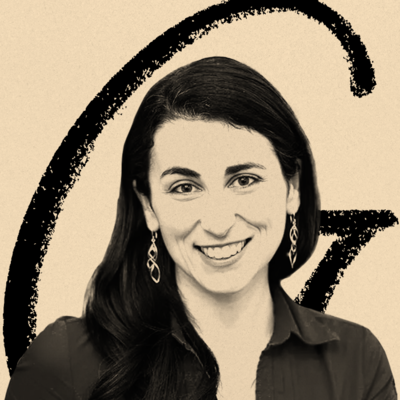
The famous Robert Frost poem—about taking the road less traveled—hits differently at my age. In my mid-thirties, I find myself wondering whether Frost had to grieve the loss of the road he didn’t take—not because he made the wrong choice, but simply because he had to make a choice at all.
When I was younger, I thought I had time for everything. Even if I knew logically that I wouldn’t, the perspective of my youth didn’t contain the true weight of mortality. Now I know better. We don’t have time to do it all.
Although it’s one of the most fundamental problems of human existence, it’s natural to fear death and try to distract ourselves from thinking about it. There’s no shortage of tools to help redirect our attention. In my coaching practice, I’ve found that one of the most insidious drugs of choice is also one of the more socially acceptable ones: work.
Work is productive. Work puts food on the table. Work is virtuous. While societal narratives recognize that compulsive working is unhealthy—hence the term “workaholism”—your relationship to work has to deteriorate to quite an extent before such protective mechanisms kick in. The culture encourages and rewards unhealthy attitudes towards work.
Let’s dive deeper into how people use work to avoid facing mortality, society reinforces that avoidance, and the structure of modern-day work creates a bind that can be difficult to escape.
What happens when leisure ceases to exist?
The combination of the fear of finitude and perception of work as virtuous gives rise to a phenomenon called total work, which was coined by German philosopher Josef Pieper. Total work is a state of being where work is the central and defining focus of life. Put another way, total work is what happens when leisure ceases to exist.
According to Pieper, leisure is the capacity to “just be” without the need for distraction. Consider what happens when you have nothing in particular to occupy your attention. Often, it’s in these moments that you find challenging feelings becoming more salient in your awareness. This is the loop that keeps driving so many of us back to distraction.
In his 1948 book Leisure: The Basis of Culture, Pieper says, “Against the exclusiveness of the paradigm of work as activity, first of all there is leisure as ‘non-activity’—an inner absence of preoccupation, a calm, an ability to let things go, to be quiet.”
What Piepier is pointing to is the fact that leisure is not a break from work, because to decide to take time off from work is to assert that life is defined by work. In the same way as a weekend is defined in relation to the week, vacations and similar things that may look like leisure are in fact defined in relation to work.
Here are some other things that aren’t leisure. Leisure is not studying in order to be better at work. Leisure is not meditation performed in order to be more relaxed and effective at work. Leisure is not exercising in order to be more energized for work. And leisure certainly isn’t a “power nap” between meetings.
Leisure is the absence of the concept of work altogether. Leisure is what happens in the spaces where you’re neither “actively working” nor “not actively working.” And as work becomes more total, leisure becomes more difficult to access. This is a problem, because not only is leisure where all of the rest of your life happens, away from work; it also provides the spaciousness necessary to surface things that really matter.
You may be inclined to avoid the spaciousness of leisure, because it can bring up feelings you don’t want to be with, like that fear of finitude—of one day having to leave the party of experience before the end. As Pascal puts it: “All of humanity's problems stem from man's inability to sit quietly in a room alone.” And when unable to sit quietly in a room alone, many of us choose to work instead, and then we tell each other that this is just fine, actually.
The thing is, those fears and preoccupations aren’t going away, and those unexamined fears will be waiting patiently for you at the end. Why not turn and face them earlier? Socrates told us that “the unexamined life is not worth living.” Well, to be able to examine your life in such a way that it is worth living requires the spaciousness of leisure.
The famous Robert Frost poem—about taking the road less traveled—hits differently at my age. In my mid-thirties, I find myself wondering whether Frost had to grieve the loss of the road he didn’t take—not because he made the wrong choice, but simply because he had to make a choice at all.
When I was younger, I thought I had time for everything. Even if I knew logically that I wouldn’t, the perspective of my youth didn’t contain the true weight of mortality. Now I know better. We don’t have time to do it all.
Although it’s one of the most fundamental problems of human existence, it’s natural to fear death and try to distract ourselves from thinking about it. There’s no shortage of tools to help redirect our attention. In my coaching practice, I’ve found that one of the most insidious drugs of choice is also one of the more socially acceptable ones: work.
Work is productive. Work puts food on the table. Work is virtuous. While societal narratives recognize that compulsive working is unhealthy—hence the term “workaholism”—your relationship to work has to deteriorate to quite an extent before such protective mechanisms kick in. The culture encourages and rewards unhealthy attitudes towards work.
Let’s dive deeper into how people use work to avoid facing mortality, society reinforces that avoidance, and the structure of modern-day work creates a bind that can be difficult to escape.
What happens when leisure ceases to exist?
The combination of the fear of finitude and perception of work as virtuous gives rise to a phenomenon called total work, which was coined by German philosopher Josef Pieper. Total work is a state of being where work is the central and defining focus of life. Put another way, total work is what happens when leisure ceases to exist.
According to Pieper, leisure is the capacity to “just be” without the need for distraction. Consider what happens when you have nothing in particular to occupy your attention. Often, it’s in these moments that you find challenging feelings becoming more salient in your awareness. This is the loop that keeps driving so many of us back to distraction.
In his 1948 book Leisure: The Basis of Culture, Pieper says, “Against the exclusiveness of the paradigm of work as activity, first of all there is leisure as ‘non-activity’—an inner absence of preoccupation, a calm, an ability to let things go, to be quiet.”
What Piepier is pointing to is the fact that leisure is not a break from work, because to decide to take time off from work is to assert that life is defined by work. In the same way as a weekend is defined in relation to the week, vacations and similar things that may look like leisure are in fact defined in relation to work.
Here are some other things that aren’t leisure. Leisure is not studying in order to be better at work. Leisure is not meditation performed in order to be more relaxed and effective at work. Leisure is not exercising in order to be more energized for work. And leisure certainly isn’t a “power nap” between meetings.
Leisure is the absence of the concept of work altogether. Leisure is what happens in the spaces where you’re neither “actively working” nor “not actively working.” And as work becomes more total, leisure becomes more difficult to access. This is a problem, because not only is leisure where all of the rest of your life happens, away from work; it also provides the spaciousness necessary to surface things that really matter.
You may be inclined to avoid the spaciousness of leisure, because it can bring up feelings you don’t want to be with, like that fear of finitude—of one day having to leave the party of experience before the end. As Pascal puts it: “All of humanity's problems stem from man's inability to sit quietly in a room alone.” And when unable to sit quietly in a room alone, many of us choose to work instead, and then we tell each other that this is just fine, actually.
The thing is, those fears and preoccupations aren’t going away, and those unexamined fears will be waiting patiently for you at the end. Why not turn and face them earlier? Socrates told us that “the unexamined life is not worth living.” Well, to be able to examine your life in such a way that it is worth living requires the spaciousness of leisure.
Work expands to fill your capacity for it
One of the key factors that enables total work is the apparent inexhaustibility of work. It can often feel as though if you can just get to the end of your to-do list, then the all-pervasiveness of work will ease. At the same time, this task seems Sisyphean: there is always more work to do than your capacity to do it. Why is that?
Imagine that you’re an urban planner responsible for traffic flow. You want people to get to work quickly and efficiently, but one arterial road into your city has become so congested that you decide to add a couple of lanes to increase capacity.
As soon as the newly widened highway opens, the vehicles flow easily once again. When you check in a couple of months later, though, you’re shocked to see that the traffic is just as bad as it was before, despite the extra lanes you added.
This phenomenon is known as induced demand. In urban planning, and in economics more broadly, increasing the supply of goods—lanes, in the case of the highway—increases demand for them by reducing their cost. People who were once put off by the high cost of awful traffic (time, stress, fuel) and opted to work locally were incentivized by the new infrastructure to buy a car and travel into the city more often, causing the traffic they were once avoiding.
Induced demand also applies to work. You implement a new system to get through your emails more quickly and, strangely enough, you start to receive a lot more email. Whether it’s because you’re sending more emails that generate more responses or people know you as someone who answers emails quickly, the adage “if you want something done, ask a busy person” seems to hold true.
The problem is that your time, attention, and energy are substantially more constrained than all the things you could do with them, despite your attempts to improve them. As with the “just one more lane” approach to urban planning, the “just one more pomodoro” approach to productivity is a game that’s impossible to win. More lanes create more traffic, and greater productivity creates more work—at least if you don’t constrain the amount of work.
The solution is to accept that you can never get to the end of your to-do list and constrain the amount of work you take on. But facing that predicament is easier said than done.
You can’t do everything—and that’s good
In his book Four Thousand Weeks (approximately the average human lifespan), Oliver Burkeman points out that before the age of modernity, people’s capacity for work was constrained by clear limits.
A serf laboring on his landlord’s farm in medieval Europe would not have entertained a life other than being a serf. He’d never conceive of doing a month’s worth of cow milking to get ahead on the task and free up his future. He didn’t have a world of opportunities to explore outside serfdom, and cows couldn’t be cajoled into producing milk faster.
This is not to say that I’m advocating for a return to oppressive mechanisms of social control and subsistence farming. I just want to point out how much has changed in a relatively short period of time. In exchange for liberating ourselves from the shackles of social systems where humans and animals are the sole sources of labor, we get to navigate the new psychology of freedom, economies predicated on endless growth, and hence a seemingly inexhaustible to-do list.
It wouldn’t have occurred to the serf that his existence was finite and his options constrained. We are not limited in the same ways, yet modern society comes with new types of limits. And thank goodness for that.
By welcoming the constraints of our own finitude, the choices we make become imbued with meaning. It’s precisely because we can’t do everything that what we choose to do is important. And the moment you accept that you can’t do everything, you resolve work’s problem of induced demand.
Limit work in progress
Here are some practical tips for implementing the ideas covered so far.
First, have a system that constrains the amount of work you commit to doing at any moment. In particular, have a clear limit on projects that you are currently working on. This is common practice in environments that use the Kanban system developed at Toyota, which, at the simplest level, has columns for “work to do,” “work in progress,” and “work done.” Burkeman recommends the book “Personal Kanban” for guidance on how to put these ideas into practice as an individual.
While the work-to-do column could be long, you can still constrain the in-progress list to, for example, three projects. In this case, you can’t work on more than three projects at once, and you can only create space for a new project by completing an existing one or by deciding you no longer want to work on a project you had previously committed to. You are forced to confront the fact that you do not, in fact, have unlimited time and resources. Saying yes to one project means you’ll have to say no to another. On the other hand, saying no to the projects that don’t matter means you’ll have the space to say yes to the ones that do.
Second, and more introspectively, take time to grieve the loss of the roads not taken. There are an infinite number of lives you’ll never get to live. If you’re a software engineer or a tech founder, you probably won’t become a ballet dancer or an aerobatic pilot.
On the one hand, this is obvious. On the other hand, if these are dreams that parts of you once held in earnest, even naively, then there are parts of you that may be sad with your life as it is. Take a moment to acknowledge and honor the fact that you chose a different road in the past. That will help bring into awareness today that you will make similar such choices in future. As you grieve the loss of roads not taken before, you will grieve the loss of roads ahead that you will choose not to take. And this is totally fine.
Finally, if you want to explore this topic further, I’d encourage you to read Burkeman's book Four Thousand Weeks: Time Management for Mortals. If you’re interested in total work, start with “How work took over the world,” a TEDx talk by philosopher Andrew Taggart, who is among the best popularizers of Pieper’s ideas for modern times.
Michael Ashcroft is a teacher of the Alexander Technique, a coach, and a writer with a background in energy technology innovation. You can read more of his work at michaelashcroft.org and expandingawareness.org.
Ideas and Apps to
Thrive in the AI Age
The essential toolkit for those shaping the future
"This might be the best value you
can get from an AI subscription."
- Jay S.
Join 100,000+ leaders, builders, and innovators

Email address
Already have an account? Sign in
What is included in a subscription?
Daily insights from AI pioneers + early access to powerful AI tools
Ideas and Apps to
Thrive in the AI Age
The essential toolkit for those shaping the future
"This might be the best value you
can get from an AI subscription."
- Jay S.
Join 100,000+ leaders, builders, and innovators

Email address
Already have an account? Sign in
What is included in a subscription?
Daily insights from AI pioneers + early access to powerful AI tools







Comments
Don't have an account? Sign up!
Wow, the idea of using work to avoid facing mortality is thought-provoking for me. This is interesting: "that fear of finitude—of one day having to leave the party of experience before the end."
"take time to grieve the loss of the roads not taken"-beautifully put
I just retired and going from workaholic to doing things that have intrinsic worth to me rather than things that are important to faceless organizations is a transition. This provided some much-needed clues to going forward.